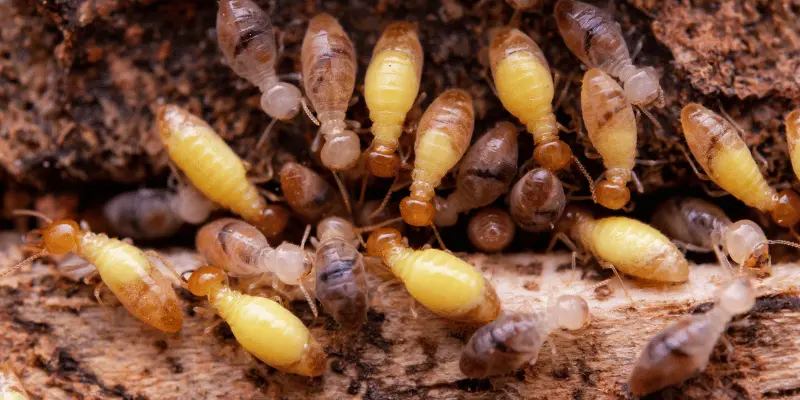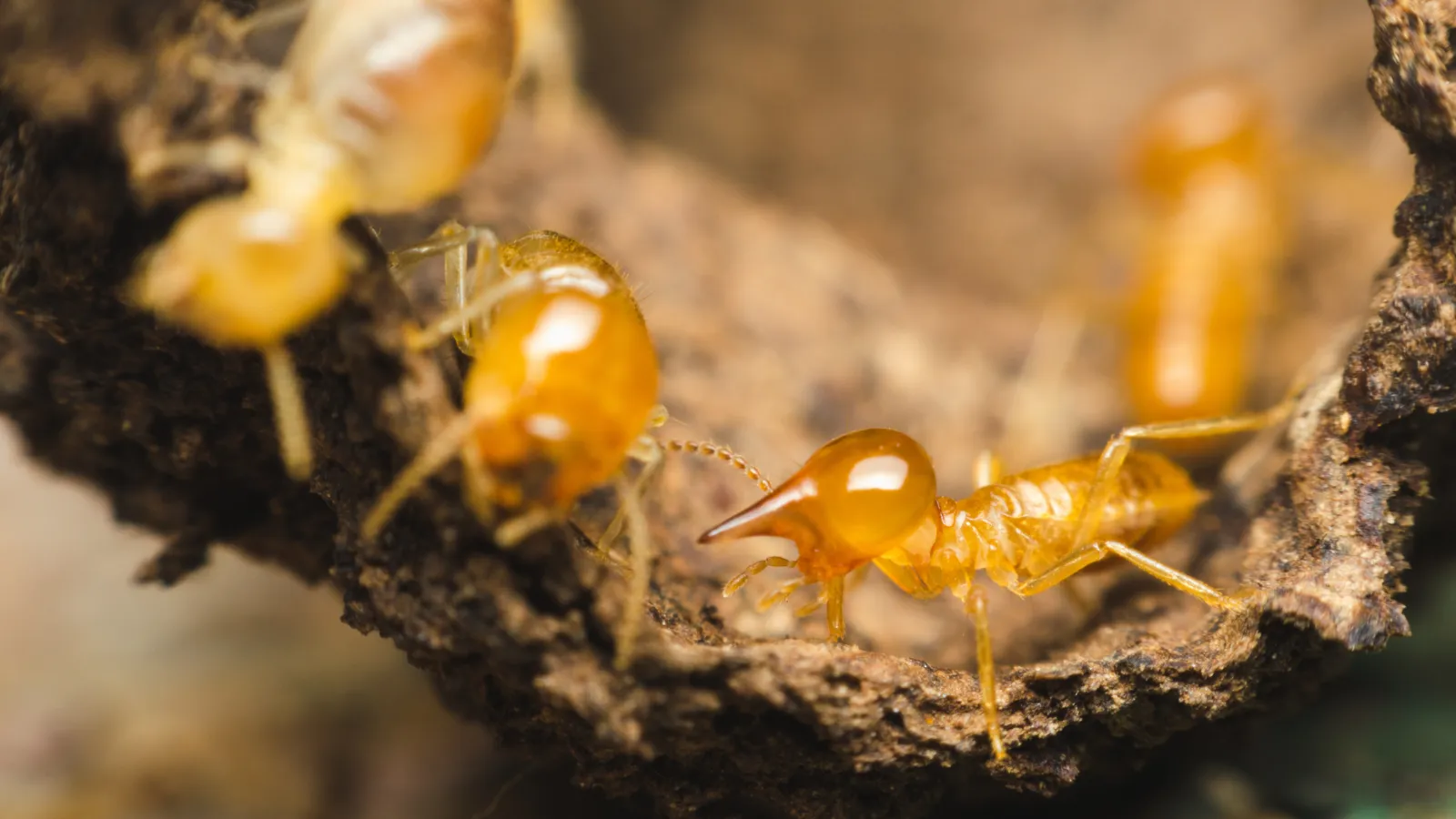Advanced Termite Control: Proven Methods for Removing Termite Infestations
Advanced Termite Control: Proven Methods for Removing Termite Infestations
Blog Article
Environmental Impact of Parasite Control: Harmonizing Efficiency With Sustainability
The environmental impact of parasite control is a vital issue that requires a fragile balance in between attaining effectiveness in managing parasites and making certain sustainability of our communities. As we strive to shield our crops, homes, and wellness from the dangers posed by pests, the approaches we utilize can unintentionally damage the setting. From making use of damaging chemicals that permeate into our dirt and water to the unplanned repercussions on non-target varieties, the effects of traditional bug control techniques are significant. There are arising techniques that supply hope for an extra lasting strategy to pest management. These options not just objective to attend to the immediate insect troubles however additionally take into consideration the long-term health and wellness of our world.
Dangerous Chemicals in Parasite Control
The application of harmful chemicals in pest control postures substantial ecological and health and wellness dangers that call for careful factor to consider and mitigation methods. Chemicals, insecticides, and herbicides are generally utilized to eradicate parasites, yet their prevalent application can result in unintentional repercussions. These chemicals can infect dirt, water resources, and the air, influencing not only the targeted parasites but likewise advantageous bugs, wild animals, and human beings.

To deal with these dangers, incorporated pest management (IPM) methods are being promoted as a more sustainable alternative. IPM involves a mix of techniques such as biological control, habitat control, and the targeted use chemicals as a last resource (ant control gastonia nc). By adopting an all natural approach to pest control, we can lessen the ecological and wellness impacts connected with unsafe chemicals while successfully managing pest populaces
Effect on Non-Target Variety
Thinking about the unexpected consequences of pest control approaches, the effect on non-target varieties is a critical facet that calls for comprehensive analysis. While insect control procedures aim to target particular parasites, other organisms in the environment may be inadvertently affected. Non-target varieties, consisting of useful pests, birds, animals, and also plants, can experience indirect or straight damage from chemical applications or biological control approaches.
Pesticides made to battle a specific insect pest might damage pollinators like or all-natural predators such as ladybugs. Organic control representatives, if not species-specific, can pose risks to unintentional targets, interfering with the environmental equilibrium.
To minimize the influence on non-target species, incorporated bug administration (IPM) techniques that stress a holistic approach to pest control are recommended. These techniques prioritize using eco-friendly methods, decreasing harm to valuable organisms while effectively handling pest populations. Performing comprehensive danger analyses and keeping track of the outcomes of bug control efforts are crucial actions in guarding non-target types and promoting overall community health.
Dirt and Water Contamination
Unplanned ecological effects of parasite control techniques extend beyond affecting non-target types, with significant effects for soil and water contamination. Pesticides, herbicides, and chemical plant foods used in pest control can seep right into the dirt and infect groundwater, posing a risk to both terrestrial and aquatic environments. Dirt contamination can interrupt the equilibrium of bacteria important for nutrient biking and plant development, resulting in reduced soil fertility and performance. These chemicals can linger in the atmosphere for extensive periods, gathering in the soil and potentially getting in the food chain.
Water contamination is one more essential check that concern connected with insect control methods. To reduce soil and water contamination from insect control tasks, integrated pest management approaches that focus on sustainability and lessen chemical inputs are crucial.
Air Pollution From Chemical Usage
Exposure to airborne chemicals throughout farming applications postures a substantial problem for air contamination control procedures. They can volatilize into the air and kind volatile natural compounds (VOCs) and various other airborne pollutants when pesticides are sprayed onto crops - ant control services. These chemicals can add to the formation of ground-level ozone, a significant part of smoke that can have detrimental results on human health and wellness, crop efficiency, and total air quality. In addition, pesticide drift, where chemicals are lugged by the wind to unexpected locations, can cause the contamination of close-by communities and water bodies.

Strategies for Sustainable Parasite Control
In the world of farming methods, carrying out sustainable insect control methods is vital for keeping eco-friendly balance and securing crop returns. Sustainable parasite control stresses the usage of ecologically friendly methods to handle bug populaces properly while reducing injury to non-target organisms and communities. Integrated Insect Monitoring (IPM) is a widely taken on approach that combines biological, social, physical, and chemical control approaches to attain long-lasting parasite monitoring solutions.
One secret strategy in lasting parasite control is advertising biodiversity within agroecosystems. By boosting all-natural enemies of insects, such as parasitoids and predators, farmers can lower the demand for artificial chemicals. Plant turning and diversification are also reliable methods to interrupt pest life cycles and produce less desirable conditions for pests to thrive. In addition, utilizing pest-resistant crop ranges and employing strategies like trap cropping can help in reducing bug pressure without depending heavily on chemical treatments. Eventually, by integrating these lasting bug control techniques, farmers can achieve a balance between pest management efficiency and environmental stewardship.
Final Thought
To conclude, the environmental influence of pest control techniques must be meticulously considered to balance effectiveness with sustainability. Hazardous chemicals utilized in parasite control can result in soil and water contamination, air pollution, and injury non-target varieties - termite control. It is crucial to apply sustainable insect control approaches to minimize these unfavorable results on the environment and promote a much healthier ecological community for future generations
By adopting an alternative strategy to pest control, we can minimize the ecological and health and wellness influences linked with hazardous chemicals while successfully taking care of pest populaces.

To alleviate the air pollution triggered by chemical use, it is crucial to embrace incorporated pest administration strategies that prioritize the usage of non-chemical pest control techniques, such as plant rotation, all-natural killers, and resistant crop ranges. Sustainable parasite control emphasizes the usage of eco friendly techniques to take care of pest populations efficiently while decreasing harm to non-target microorganisms and communities. Integrated Bug Monitoring (IPM) is a widely embraced strategy that combines organic, social, physical, and chemical control approaches to attain long-term bug management services.
Report this page